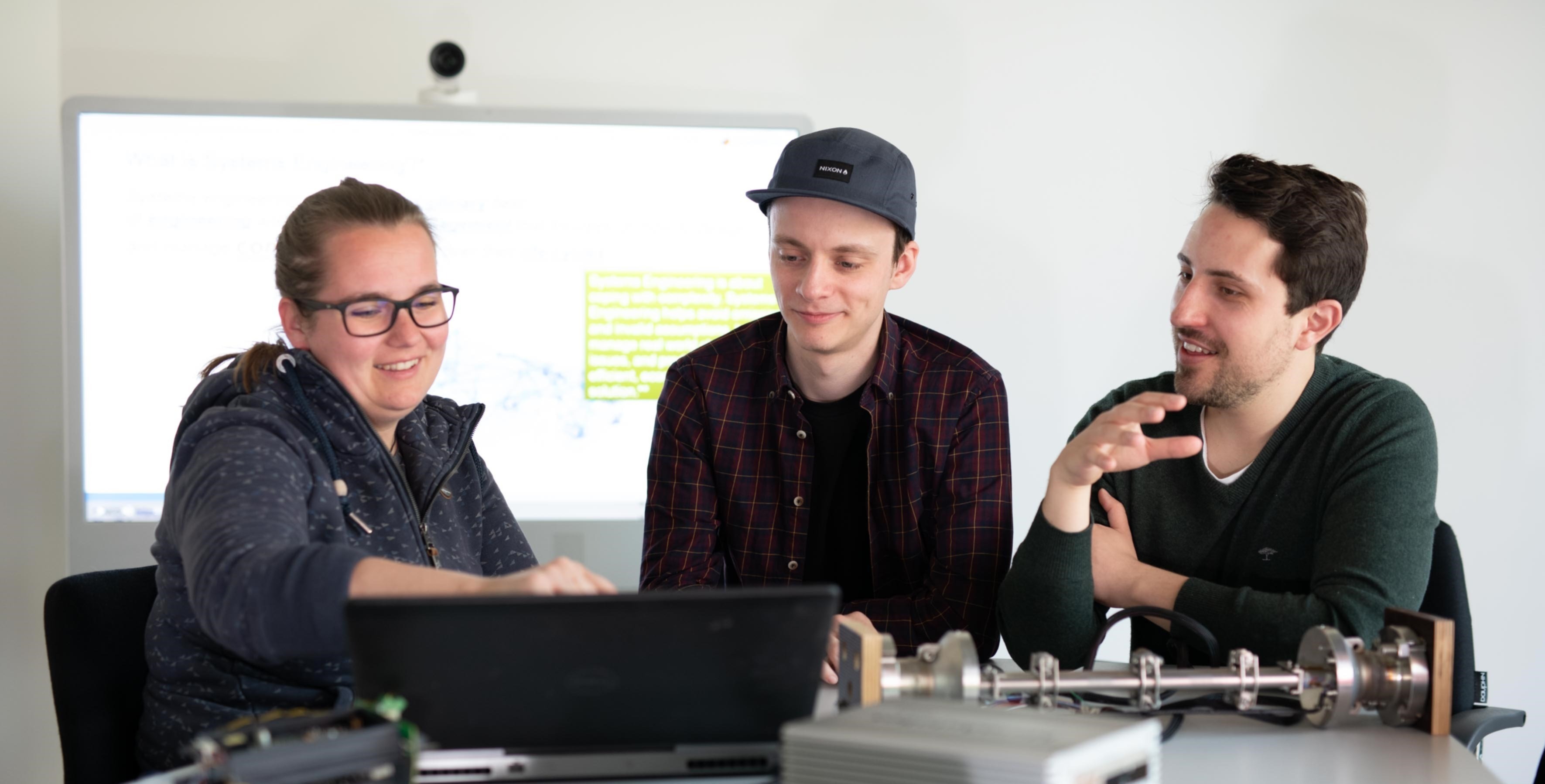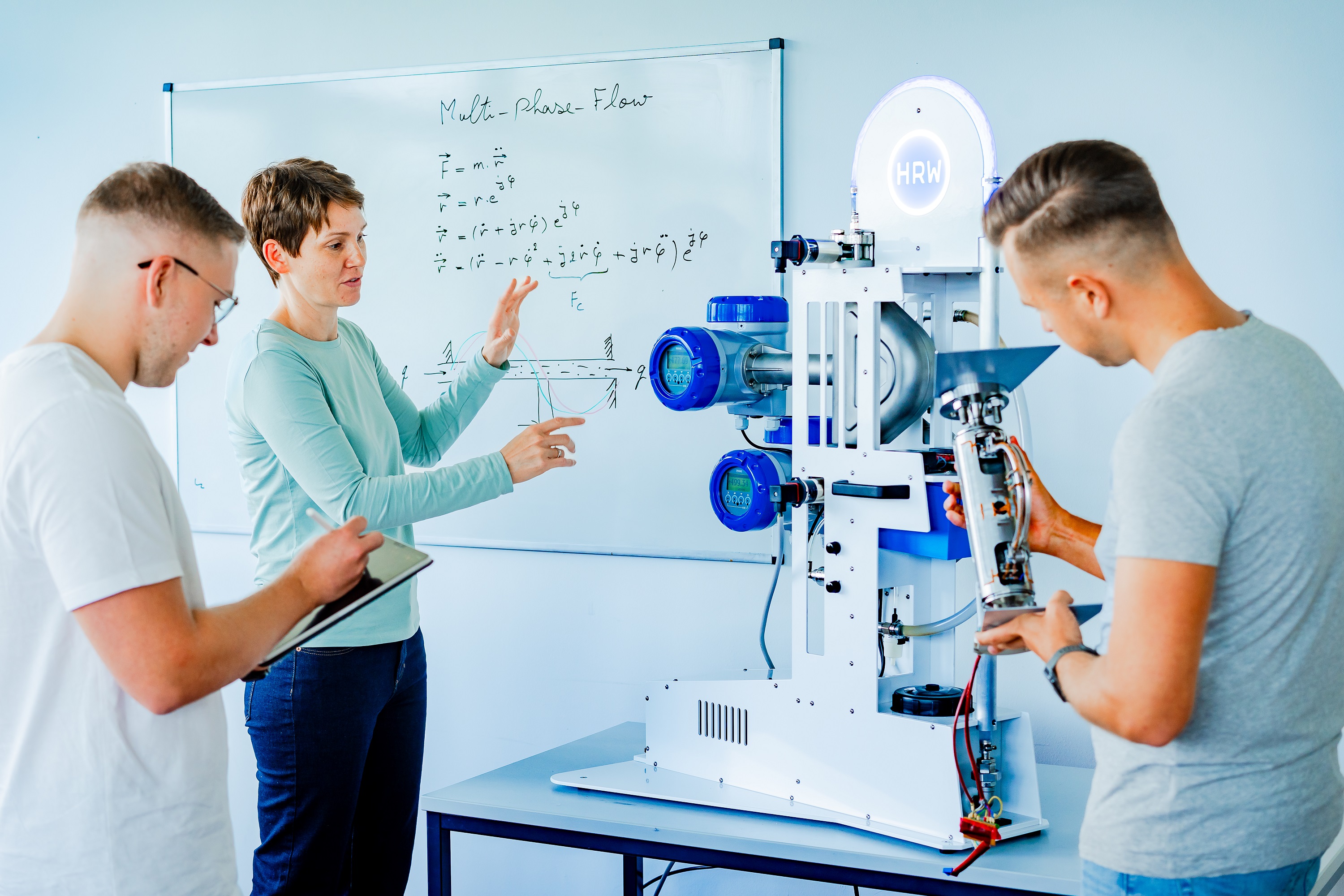Technical Systems

To perfection with computer-aided processes
The three-semester Master's programme is designed for students with the aim of:
- pursuing a career in systems engineering.
- working in an application-orientated and scientific way.
- dealing with current complex systems.
- actively and creatively designing solutions.
- developing professionally and personally.
- taking on a management position in a company.

Your study content
The Master's in Systems Engineering deepens the content of various engineering bachelor's programmes and offers specialisations in:
- Electrical engineering
- Mechatronics
- Vehicle electronics and electromobility
- Automation technology
- Medical technology
Through your own research and development work, reports, documentation and presentations as well as joint projects, you will be encouraged to carry out intensive independent scientific work, but also to work in project teams.Your English language skills (particularly in specialised areas) will be improved to such an extent that you will later be able to set the tone in international collaborations. You will also professionalise your presentation and negotiation skills.
What you can expect
Practical training
Modern equipment in the laboratories
Good supervision ratio
The leading position of the products or services is based on high innovation rates, high complexity and differentiation, efficiency and longevity or quality. It is characterised by the fact that mechanical engineering or mechanics, electrical engineering, measurement and control technology and other (physical or chemical) components are usually combined with their dynamics to form an overall effect.
In order to be able to assess the possibilities and also the limits of changes, improvements or even new developments as far in advance as possible, companies work with computer-aided development and simulation processes.
It is not only the preliminary work that is important, but also the subsequent analysis and optimisation of existing systems. However, many simulations and computer models do not optimally represent the real system. They often make do with partial solutions or purely qualitative descriptions of behaviour. This is due in particular to the lack of well-trained personnel. Often "only" lateral entrants are employed in this area, e.g. with a normal engineering qualification or computer scientists, who, due to their training, are usually only able to solve partial aspects of the required overall task well.
Your course of studies
System theory
Modelling of signal-processing physical and technical systems
Elective module 1
Elective module 3
Elective module 2
Mathematics
Vector analysis, interpolation and stochastics
Ethics and careers in engineering
Strengthening analytical, logical and argumentative skills, scientific work, writing and presenting
Scientific simulation
Mathematical background and practical applications of simulation tools, e.g. finite elements and analysis, multi-body simulation
Elective module 4
Elective module 6
Elective module 5
Master thesis and colloquium
Final thesis with subsequent colloquium
What you need to bring along
You can enrol on this Master's degree programme if you have already completed a professional engineering degree course of at least seven semesters with at least 210 credits. Of these, 110 should come from modules with a high proportion of electrical engineering. Bachelor's graduates whose degree comprises 180 credits can still be admitted. In this case, they must make up 30 credits of Bachelor's equivalent work (learning agreement in consultation with the head of degree programme). This ensures that 300 credits are achieved upon completion of the Master's degree programme.
You will also need proof of proficiency in the German language equivalent to reference level C1 or higher as defined by the Common European Framework of Reference for Languages (CEFR). All degree programmes are taught in German.
Application process
The application phase for the approval-free Master’s degree programmes for the coming winter semester begins on 01. May 2024 and ends on 15. September 2024. Applications can only be submitted online via our application portal.
If you have any questions, please contact the application support team.